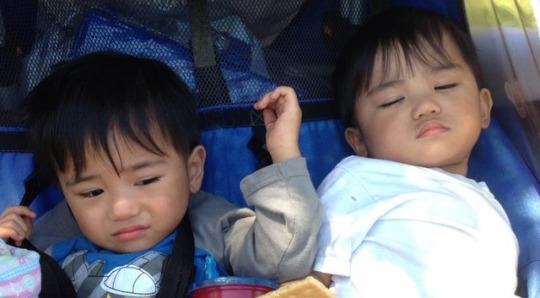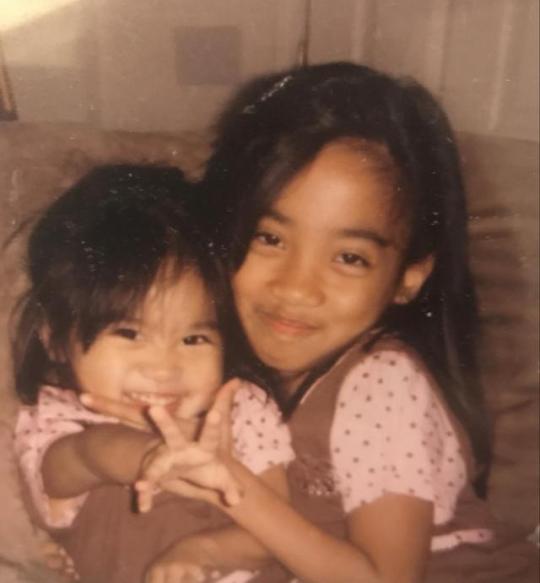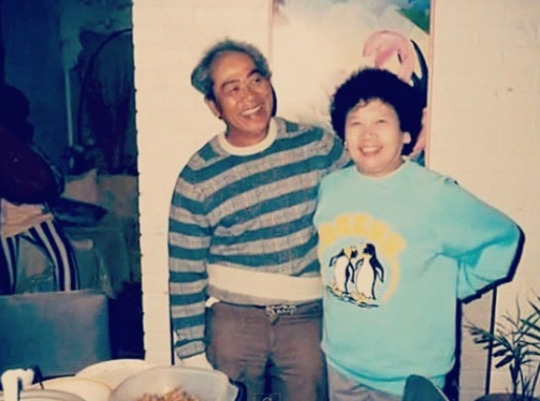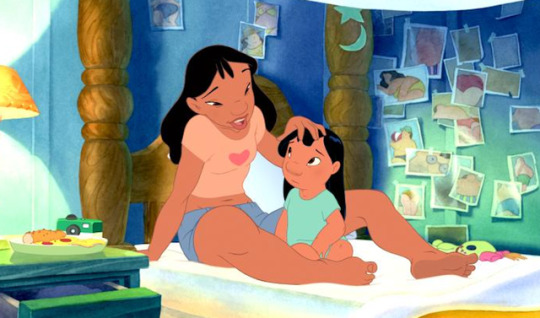Photo

Finding a new family
When I first applied to college, I didn’t even think I was going to end up at Chico State. Little did I know that I would be moving in three months after my senior year of high school ended.
At first I was nervous, I was one of the few people who moved out of town for college in my group of friends and even in my family, I was the farthest one out of my cousins moving out. I was terrified because I was going to be all on my own for once and I was going to be living in a totally new environment with strangers.
Luckily, I found out one of my close friends, Philip, from high school was going to Chico as well so we made plans to hang out. The next obstacle I faced was living with a total stranger. Grace was assigned to be my roommate and during the first week we lived in the dorms, we didn’t talk much. When I was in the dorm she wasn’t and vice versa. We barely saw each other so we didn’t really make an effort to get to know one another. Then one day she came into our room frustrated so she vented to me about a boy. As soon as we started talked we clicked so well. I think part of that was just because we went through similar boy problems and we bonded that way. From that day forward, we became super close and now she is one of my best friends.
Through Philip, I met his roommate Enzo and his baseball friend Sam. All five of us would hang out everyday and soon enough we all became close. Six months ago I was so afraid of coming to Chico because it was such a different vibe from living in the Bay Area and the Silicon Valley and just being away from my friends and family. But fast forward to now, they’re my best friends and I ended up making my own little Chico family. You never know where life takes you and I just know I’m glad life took me to Northern California where I found my new Chico family.
https://www.theodysseyonline.com/the-importance-of-friendship-in-college-life
(original photo)
0 notes
Photo

Birth Order
In siblings, the oldest child, middle child, and youngest child all act in different ways yet they all grew up under the same house. This is because many people do not realize how the order of which you were born affects your personality. Each child is different and subconsciously each parent treats them that way. Everyone of these themes are common among each birth order.
As the oldest child, they are expected to be the leaders. Studies have shown that the eldest child tends to be more ambitious and responsible. Since they are the first born, parents are more stricter and expect more of them. This helps younger siblings later on because they can learn from their older sibling’s mistakes and they know what not to do. The eldest child also tends to be more competitive because they want to be the best at everything they do.
As the middle child, they are known to be the “odd one out,” this is because since they aren’t the oldest or youngest, they stand out. This creates the middle child to be the one to be more social and a keeper of peace. Middle children struggle with self identity and they often do whatever they can in order to make a name for themselves. This leads for middle children to be slightly rebellious at times.
As the youngest child, they are the baby of the bunch. Being the youngest they are more likely to be attention seeking and self centered. Parents deal with two siblings’ worth of problems so when it comes to the youngest, they are more nonchalant and easy going about things. This lets for the youngest child to be more free spirited and allows them to do whatever they want.
Even living under the same roof, each sibling is different. This is because on a subconscious level these traits correlate to the position each sibling was born.
https://www.parents.com/baby/development/social/birth-order-and-personality/
(original photos)
0 notes
Photo

Family and Disabilities
Nobody is perfect and not everyone is born perfect. Either mentally or physically, some people have disabilities. Disabilities have no certain shape or form or look, and there are many different types of disabilities.
The two twins in the photo above are my cousins. On the left is Benjamin and on the right is Alexander. When they were young, they were really shy and quiet. My family never thought anything of it because their parents (my uncle and aunt) lived two hours away from us so we just thought it was because we barely got to see them. As years passed, they would come to our family parties and my cousins and I would try to talk to them but they still were really shy. After some testing, we all found out that they had autism. Nobody in my family has never been diagnosed with autism so my uncle didn’t know anything on the subject or how to progress from there. This was a game changer in my family because we realized it wasn’t just because they were shy, they had a disorder.
Many parents aren’t prepared to raise a child who’s on the spectrum. Having a child on the spectrum holds many problems the first one being that they are even unaware that their child has autism. Instead of allowing their children to become independent, they have to shift their money and time to helping them succeed. Although this can be a very hard process, having someone with a disability in the family is not a burden on the family at all. There are many programs that have been started in order to help families with money issues. There are also many clubs and organizations that are dedicated to helping individuals with disabilities. This makes it easier on the family and gives them tremendous amount of support.
http://family.jrank.org/pages/396/Disabilities-Impact-Disabilities-on-Families.html
(original photo)
0 notes
Photo

A man’s best friend, or should I say a family’s best friend
In the old days, families used to be nuclear being father, mother, and children. Now families have moved to cousins, aunts, uncles, grandparents, and everything else in between. Just in the past century alone, families have expanded to include pets as well.
For as long as I could remember, I have wanted a dog. Being in a family of 5-6 people and was constantly moving houses, it was too hectic to even think about. More than 10 years later on June 15, 2017, the Animal Rescue Foundation (ARF) had free adoptions and my mother decided my siblings and I were old enough to take care of a pet and we started living with my aunt so the timing just seemed perfect. Taking Charlie home was one of the best days of my life, but I didn’t realize how much work it was to take care of a dog let alone a puppy. I’ve never taken care of a dog before so it was whole new territory for me. At first it was hard taking care of Charlie, since we adopted him, he was different. We didn’t know what he went through before he was picked up by the ARF. He was just a scared little puppy. He wasn’t super friendly with other people, he was afraid of dogs, it took him awhile to ease up to all of the members in my family. We even considered paying thousands of dollars to train him. In the end though, everything worked out. I learned how to take care of him and train him and now he’s just a funny goofball to be around.
Families add many different kinds of pets into their homes from dogs and cats to birds or pigs, the possibilities are endless. While most of the reasons behind getting pets are because they’re cute, they also impact our lives so much. Pets aren’t viewed as just a mindless animal to us in society anymore, we view them as actual members of the family. Pets can sense our emotions are are there for us when we are stressed or upset. They are there to ease tension between family members and just support and stand by for us when we need a pick me up.
https://www.nytimes.com/2011/03/15/health/15pets.html?src=me&ref=general
(original photo)
0 notes
Photo

SAMUEL GIL INTERVIEW- Only Child
I can only imagine how different I would be if I didn’t grow up with siblings. As stated in an earlier post, growing up with siblings teaches you many things. Things that could be so simple as sharing or as impactful as love or responsibility. But not everyone grew up with siblings. I’ve interviewed Samuel Gil on his life as an only child and how he believes it affected him. For the most part Gil believed his life as an only child had its ups and downs but overall he enjoyed his childhood. Being an only child he felt tremendously lonely. He saw many people with older or younger siblings and it made him feel left out. Especially when he wanted company because both his parents were working all the time. He was afraid no one would remember him because he “didn’t impact someone.” Gil also thought if he had siblings, he would’ve had more responsibility to take care of them, he would not have as many toys, and he wouldn’t have been as spoiled as he was.
Gil admitted that even to this day he still struggles with sharing. He never really learned it when he was younger so now he has a hard time sharing. This is actually a common trait among only children. In China, the population is so high that families are only allowed to have one child because of a law placed in 1979 trying to slow the growth rate of the population. This ended up causing “Little Emperors Syndrome.” Little Emperors Syndrome is essentially that since there are many only children in China, many families spoil their kids so much that they become like an “emperor” and nobody would tell them no.
In the end, there are positives and negatives to having siblings and not having siblings. There are other positives of being an only child. Gil still was glad to grow up as an only child and what he lacked in siblings he made up for in friends.
http://healthland.time.com/2013/01/10/little-emperors/
(own photo)
0 notes
Photo

Growing up with siblings
As the oldest of three daughters, having siblings affected my life in many ways. At first, I was selfish because up until kindergarten I was the only child, I never had to share anything and my parents spoiled me. When my middle sister was born, I was jealous because I was born when both my parents were starting their careers and I barely saw them due to them working all the time. I ended up being raised by my grandparents along with my other cousins who were around my age. Unlike me, when my middle sister was born, my parents were always around when she was growing up. I thought it was unfair and I didn’t get along with her because she got all the attention I never did. Adjusting to life with my new sister was hard because I had to learn to share my things and watch over her. All of a sudden my toys were hers, anything I got, I had to share with her. A few years passed and then my youngest sister was born. This made me change my views on my sisters because as I grew older, I realized it wasn’t a competition anymore, it was about taking care of them and the responsibility of becoming a role model.
Many people can agree that having siblings sometimes (or most of the time) can be a slight inconvenience to us but they do affect us in ways we don’t realize. Sibling bonds isn’t just who took what without someone’s permission or getting blamed for breaking something. Individuals who grew up with siblings ended up learning new things. These things can be as simple as sharing but also more impactful things like love and responsibility. Growing up with siblings also affects our mentality (in a positive way) and you can learn from other their mistakes.
Siblings are teachers, disciplinaries, and most importantly lifelong best friends, literally.
https://www.realsimple.com/work-life/family/benefits-of-siblings
(original photo)
0 notes
Photo

Asian-American families and education
Throughout the world, depending on where you grew up, parents pass down cultural traditions to their children for many generations. Families practice the same customs based on their culture and it leaves a distinct remark to the part of the world they are from. In Asian cultures, it has become more of a social norm for families to be not speak about their feelings and be interdependent. This means everyone in the family relies on other people within the family. Asian parents tend to be reserved and it is common to not express your feelings. Asian-American families had to adjust their values to comply with the idea of the “American Dream.” Struggling in America, Asian-American parents push their kids to be successful to obtain a better life. Asian parents tended to have high expectations of what they want from their kids and when they do not meet those expectations, tensions rise within the family. In order to fulfill their duty, children focus all their attention into school and prioritize their studying first. This has become a problem for not only the children of the family but the parents as well.
In children, having to keep up to the expectations of their parents takes a toll on their mental health. Instead of enjoying their adolescence, they worry and focus on their grades instead. Studies have found that Asian-American students in their junior year of highschool studied 6-8 hours per week more than other students. Another study found that most of the Asian-American students did homework for 5+ days a week compared to other ethnicities in the school. This shows how Asian-American kids spent less time with friends, having part time jobs, doing chores, or even dating.
Asian parents practice old traditional values, ignorant to the importance of mental health of their children. This creates a problem because children are unable to speak about their feelings due to Asian norms of not showing emotions and very reserved parents. This emphasis on school creates a distance between the parents and the children. Children are unable to have a break of the workload and the constant battering from parents produces an unhealthy mental state on the students.
https://wp.nyu.edu/steinhardt-appsych_opus/parental-influence-on-asian-americans-educational-and-vocational-outcomes/
(original photo)
0 notes
Photo

What it means to be a “perfect” or “ideal” family
When the concept of the “perfect” family comes into question, many view a perfect family as a working husband and a stay at home wife with healthy happy kids. These “model family” views come from what we see around us and as well as what we believe our family should look like. The root of these perceptions comes from ourselves as what we value and we contrast that to all the families we see around us. What we might lack in some aspects, we compare to others who successfully obtained those aspects. This creates a mental competition in our head of who has the better family.
This is not a good habit to have because in reality, no one really knows what goes on in other people’s lives. One family can seem “perfect” in another person’s eyes but in actuality, the “perfect family” can be struggling in some way. Every family goes through hardships within their lives. It is important to remember that as a family, you can overcome these obstacles.
There is truly no “perfect” family to ever exist. Everyone has different views on what family should be like. But in the end, a family with one parent can function better than a family with two parents, or a family of two parents can function better than a family with no parents; there is no true definition as to which way is the best way to raise a child in. It all comes down to values, upbringing, and so on. There are endless possibilities of different kinds of families that exist like how there are endless possibilities on raising children.
The ideal, perfect family ceases to exist and parents/ family members should realize that that idea comes from comparing different families and families are not competitions to be the best or have the best at, it is about sharing emotional bonds, relying on one another, and just contributing to the wellbeing of each other.
https://iblp.org/questions/there-such-thing-perfect-family
(photo taken from google)
0 notes
Photo

Family Portrayed in Movies and Shows
The media sheds light on all different family dynamics through movies and shows. In the show Full House, three sisters and their father Danny, overcome the grief of the death of their mother with the help of their uncle Jesse and father’s childhood best friend Joey. Together the three older men band together in order to raise the younger girls and become a close-knit family. Throughout the seasons, many life lessons were taught to the girls and as well as the audience watching. The show portrayed various problems the family had to deal with and how they overcame them. As the show is renewed for more seasons in the past years, the once young daughters are now grown up to be parents and continue to advise their kids the same problems they faced when they were younger.
On the other hand, having even one parent was a blessing for the girls of Full House, in the movie Lilo and Stitch, by Disney, Nani had to raise her younger sister, Lilo, all alone. With both of their parents being gone, Nani had to become the parent figure for her sister. She made sure her younger sister was doing well in school and her extracurriculars like hula. She also raised Lilo to be a good person with a loving heart. This is shown when she encourages Lilo to feed the fishes with peanut butter and jelly sandwiches and helps and supports her with her problems. She did all of this even though a social worker constantly tries to separate them.
Even though younger siblings were raised by different family members, they still strived to make everything work out. Family has no definition. These two iconic movies and shows has shown how even though these young children grew up without the ideal family unit, they still were able to grow up as good people. There were hardships that came along but each family banded together in order to overcome these problems.
https://medium.com/@Etinni_/lilo-stitch-and-the-complexities-of-family-de357de3e086
(photo taken from google)
0 notes
Photo

Co-Parenting and Divorces
According to the American Psychological Association, just in the United States, the divorce rate is up to 50% with couples. Back then, not very many couples would get divorced but times have changed and now it’s pretty much a coin flip outcome. Many people have the perception that divorced couples cannot stand to be in the same room with one another. This is misleading because there are divorced parents who can co-parent successfully. Just because a relationship doesn’t work, doesn’t mean things have to be bad between them and they can’t make it work for their children. A common theme among divorced parents is that they all agree that they want the best for their children. Although, not very many parents can achieve this goal because they put themselves before their children.
In today’s society, since so many marriages end in divorce, parents fight for custody in the court system. This creates a problem within the family because often times parents try to use their children in order to favor themselves or use them against their ex-spouse. This can lead to negative effects with their children, whether they realize it or not. Therapist and counselor, Steven Earl, writes “Children (and adult children) have the attitude that their parents should be able to work through and solve any issue. Parents, who have given the children life, are perceived by the children as very competent people with supernatural abilities to meet the needs of the children. No problem should be too great for their parents to handle. For a child, divorce shatters this basic safety and belief concerning the parents' abilities to care for them and to make decisions that truly consider their well-being. Children have the strong belief that there is only one right family relationship, and that is Mom and Dad being together. Any other relationship configuration presents a conflict or betrayal of their basic understanding of life. In divorce, children [tend to] resent both the custodial and absent parent.” This shows how much divorce can affect their child. This effect will continue to follow the child throughout their adult lives and changes how they view family and love as compared to children who grew up with parents that remained happily married.
https://www.focusonthefamily.com/marriage/divorce-and-infidelity/should-i-get-a-divorce/how-could-divorce-affect-my-kids
(photo taken from google)
0 notes